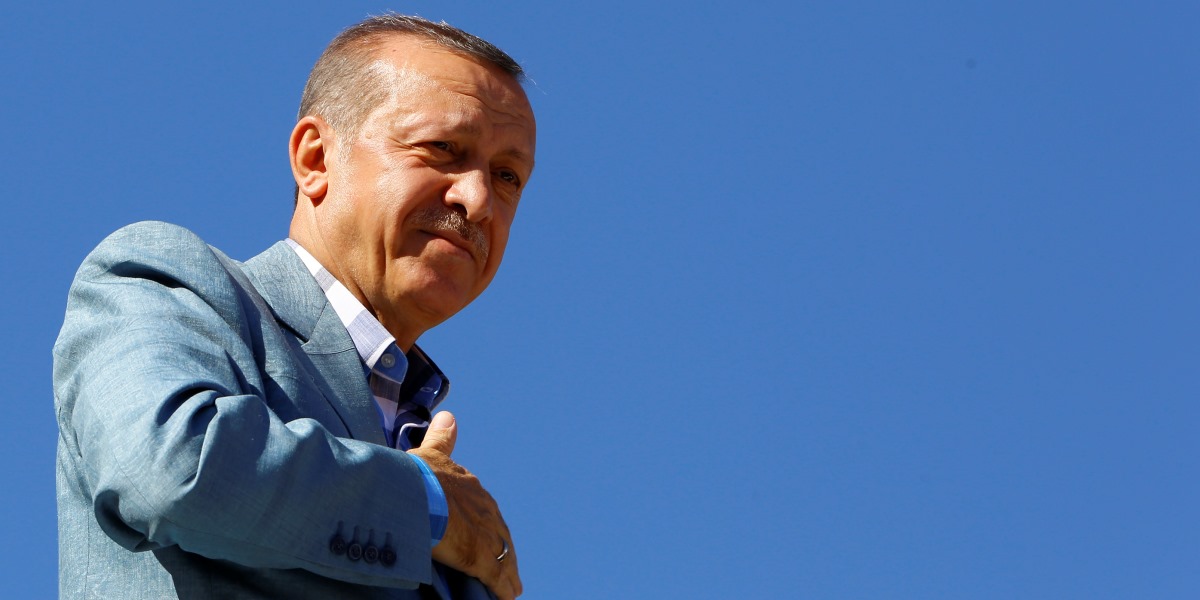Many people in Turkey like to talk about the country's transformation referencing strong leaders. We express our opinions about the modernization process by talking about our love or hate toward certain leaders. Obviously, this tendency makes it possible for Turks to make sense of their history.
Having consolidated enough power, political leaders go down in history as symbols of success or failure. If and when necessary, their supporters and opponents reproduce this image to account for recent developments or discuss historical events. More often than not, whether a specific reference can inspire the masses proves more important than the accuracy of said narrative.
To be clear, drawing inspiration from great leaders to demarcate political and ideological lines isn't unique to the right. Like Adnan Menderes and Turgut Özal appeal to Turkish conservatives, the late Bülent Ecevit represents for leftists a set of policy proposals they deem necessary to promote the country's welfare.
Over the past century, three political figures have proved more controversial than everyone else: Sultan Abdulhamid II, Mustafa Kemal Atatürk and Recep Tayyip Erdoğan. Needless to say, comparing the three figures is a national pastime in Turkey. Depending on the commentator's political stance, history is re-written.
The Kemalists, who succeeded the Young Turks in the early 20th century, hailed Mustafa Kemal as the Republic's victorious founder, while discrediting Abdulhamid as the "red sultan" who caused the Ottoman Empire's disintegration. Their Islamist contemporaries, in contrast, maintained that Abdulhamid, unlike Mustafa Kemal, was a champion of an alternative modernization process - the "great khan" who was at peace with Islamic values. They blamed the intelligentsia of the late Ottoman period for failing to understand national interests and leaving Abdulhamid alone.
Today, supporters and critics of President Recep Tayyip Erdoğan try to make sense of contemporary developments by drawing comparisons between Turkey's current leader and Abdulhamid and Mustafa Kemal. For Erdoğan's staunchest opponents, the president is an authoritarian leader who destroyed Mustafa Kemal's regime. He will face the same fate as Abdulhamid, they claim. His supporters, in turn, think of Erdoğan as a hero fighting the second war of independence at home and abroad - a leader who must not be left alone.
Obviously, Abdulhamid, Mustafa Kemal and Erdoğan are completely different characters. Some comparisons could be made between their lifestyles, private lives or their approach to Islam or the West, but what really matters is that they were at the helm when Turkey was at a crossroads.
Personally, I believe that the three figures are united by the fact that they consolidated political powers against the backdrop of some of the most critical periods in Turkey's modernization journey. Each leader made some fundamental decisions about the country's direction and therefore the only meaningful comparison between them is how they consolidated power.Seeking to keep the Ottoman Empire in one piece at a time when the great powers were fighting over world domination, Abdulhamid II suspended the Constitution and opted for an authoritarian path to modernization.
Mustafa Kemal, who built the Republic from the empire's ashes, dismantled the broad coalition that helped him win the War of Independence and eliminated his rivals to pursue a semi-totalitarian modernization project. In the end, the Kemalist legacy slowed down democratic consolidation in Turkey by empowering a number of self-proclaimed guardians of the Republic. The situation is so complicated that, even after 14 years in power, the Justice and Development Party (AK Party) continues to work on democratic consolidation while fighting the PKK and the Gülenist Terror Group (FETÖ).
Erdoğan, in turn, consolidated his power through democratic elections and spends most of his time dealing with the challenges presented by a troublesome neighborhood, where the post-World War I order is disintegrating and national borders are shifting. Unable to implement another authoritarian modernization project, he has to make a number of risky decisions to protect Turkey's national interests and reconstruct the democratic institutions on which his power rests. Luckily, the July 15 resistance made it clear that Erdoğan, unlike Abdulhamid, isn't fighting the good fight by himself.
[Daily Sabah, October 7, 2016]







